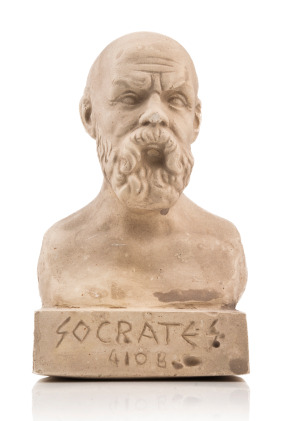More than a few times, I have been asked, “what’s the one secret about being a parent that you are most proud”. Each time that I am asked the question, I have given what feels like an insufficient response.
How do I pick just one thing?
The other day, I was confronted with the question again. Instead of answering quickly, I decided to reflect on the question. My first reflective thought was to say that I am proud of having given life to my son. Although, the reality is that I had little to do with the whole “life giving” process.
(I’ve got to be careful here as I don’t want to turn this into a sex education course or worse some adult conversation about the amount of time I participated in the conception process.)
What I meant is that men don’t normally get pregnant or have babies. Thus, saying giving birth to my son can’t be my proudest moment because me giving birth is an anatomical impossibility.
And yes, I’m aware that there is at least one incidence of a male giving birth to a child so maybe the correct terminology is anatomical impracticality. However, as far as I’m concerned – getting pregnant and having a baby is flat-out impossible.
To put it mildly, there is no way – in you know where – that I would ever want or consent to being pregnant. That ain’t happening. Thanks but no thanks!
So given my anatomical limitations and my firm perspective on never ever ever getting pregnant, the question remains unanswered. What’s the one thing that I did for my child that I am most proud?
Hello, Hello, Hello
Since I am forced to pick just one thing I will but the truth is that there are an abundance of things that I have done for my son for which I am proud. Thus, trying to limit my response to just one thing is difficult and maybe a tad bit disingenuous.
I don’t believe that I am alone in my perspective. I think any good parent will attest that over a child’s life they have done countless numbers of good things for their child. However, being forced to give just one response, I would have to that I am most proud of having introduced my son to Socrates.
Socratic Method
 Of course you know that I didn’t really introduce my son to Socrates. To have done so would have required the ownership of a time machine. It would also require that you suspend your imagination to believe that my time machine actually worked. More importantly, you would have to believe that I would have wasted my time going to meet Socrates instead of going back each day to purchase a lottery ticket for tomorrow’s lottery. Trust me when I tell you, I would I be the lottery winner of every lottery, everyday, in every city and state all over the world for the foreseeable future .
Of course you know that I didn’t really introduce my son to Socrates. To have done so would have required the ownership of a time machine. It would also require that you suspend your imagination to believe that my time machine actually worked. More importantly, you would have to believe that I would have wasted my time going to meet Socrates instead of going back each day to purchase a lottery ticket for tomorrow’s lottery. Trust me when I tell you, I would I be the lottery winner of every lottery, everyday, in every city and state all over the world for the foreseeable future .
Go ahead say it with me “Cha Ching”!
But if you insist on making that intellectual leap, believing in my time machine and believing that I would chose to write a post for this blog rather than becoming the wealthiest man in the world, I suppose you might as well close your eyes an imagine me being pregnant. Wait don’t do that! Please, open your eyes already! That’s just an atrociously hideous thought, me giving birth to a child. Uh no!
http://youtu.be/AecrVzs_Bi8
Is that image gone yet? I sure hope so. Now can we please dispense with fantasy and get back to the question at hand?
Father Knows Best
It turns out that what I’m most proud of is something that have tons of personal experience and is something that I suffered through and hated as a child. I’m most proud that I was able to introduce my son to an educational method that my father made me agonize over as a child.
Whenever I had to have a serious conversation, whenever there was something important to be discussed with my father, he would begin and end the conversation with a routine I once referred to as “Tommie’s Torture”. It wasn’t until I enrolled in law school that I learned that my father’s conversational cruelty custom was none other than a pedagogical method used by Socrates.
The Socratic Method – as I now know it – is a process of learning where the teacher refrains from providing any answers. Instead, the teacher just asks a series of questions – one question after another question after another question… And just when the pupil thinks they have answered the question sufficiently – you guessed it – the teacher asks another question. This repetitive question and answer session theoretically could last forever.
In the case of my conversations with my father, they didn’t theoretically last forever, they literally lasted forever. My father’s great inquisitions could begin at breakfast and go on all day and well into early morning the next day. If I seem a bit traumatized still, you’re right I am.
Fortunately for me, in law school, the Socratic Method generally only lasted the length of the class – an average of fifty minutes. Typically, when the Socratic Method is applied, there is an end to this diatribe of continual question and answer. That end usually occurs when the teacher and/or student are satisfied that the pupil has arrived at the intended state of enlightenment.
Child’s Play
Despite, my whining about my childhood and the lesser challenge of law school, I have to admit that this form of learning provided a greater understanding of the subject matter, offered a much deeper awareness of what education should be – enlightenment and reminded me just how little I actually knew about anything. Or as Socrates once said “I know that I don’t know anything, but the others don’t even know that“.
Up until this very moment, I thought that I had actually taught my son something. However, now that I think about it, my son – like all children – might have understood the Socratic Method from the very beginning.
In retrospect, the Socratic Method is actually the embodiment of small children. Small children question everything and seem dissatisfied with just about any answer an adult gives. Even an answer to what we believe is the simplest question might be met with a look of “come on you can do better than that”, “do you really expect me to believe that?” or “okay look, I was born three years ago at night but not last night”.
A parent of one of these miniature Socrates better hope and pray that the question is not complicated or one you have yet to contemplate because if it is you are going to quickly go from being the parent to the unsuspecting student of the Socratic Method. For example, if a child asks why the sky is blue, you better be prepared for a protracted conversation. You better know a lot about science, work for NASA or have a degree in Meteorology.
Question after question will be thrown at you until you know that the answer to not only why the sky is blue but the answers to why the moon is white, why the sun is yellow, why the sky is dark at night, why grass is green and so on. All of the typical parenting responses that you can give to teenage children – “because”, “I don’t know”, “ask your mother”, “ask your father”, “ask your teacher”, “can’t you see I’m busy right now” and “go watch TV” – will be found wanting.
Forever Young
http://youtu.be/E1nbvplgElw
When you get right down to it, the Socratic Method is really nothing more than childlike inquisitiveness. That being said, now I realize that I should answer the question by saying that what I am most proud of is that I didn’t diminish or destroy my son’s natural inquisitiveness.
Instead, I have always embraced my son’s twenty questions and returned his twenty questions with twenty answers and twenty-one questions of my own. The wonderful outcome of using the Socratic Method is that my son adopted the practice very early in life of learning for enlightenment and not merely as an educational requirement.
Today, he possesses a curiosity and passion for learning that is uncommon among his peers and to be honest rare among most of my peers as well. He is a voracious reader and an enthusiastic independent scholar so much so that it would be fair to describe him as an Autodidact.
He investigates and critiques not only the beliefs and ideologies of others but he readily examines his own principles and theories especially when presented with new or previously unknown information. In other words, he is occasionally willing to admit that he is wrong which as any parent of teenager can attest is an incredible feat – a beautiful thing.
Most importantly, I believe stimulating his childhood inquisitiveness and cultivating his thirst for knowledge with the Socratic Method has him keenly prepared to avoid common societal misconceptions, evaluate information needed to make sound everyday decisions, cultivate a higher order of thinking and establish his independence as a respected and valued member of society.
The last of these benefits perhaps being the most important of all the good to originate from the introduction to the Socratic Method – my son establishing his independence.
I’m looking forward to being asked again about the thing I’m most proud of and being able to answer “the day my son moved out of my house”. Hey, I’m not being harsh. Everyone knows how much I love my son but let’s keep it real. One of these days, he’s got to go and I only want to have to ask him one, Socratic Method, question when that time arrives. What’s your forwarding address?
Are you helping your child develop vigorous intellectual habits that they can apply to live independently throughout their lives? What one thing are you most proud of having taught your child?

[…] to answer know that you do so at your own peril. However you answer, please don’t lie! Tommie L. Turner may be listening nearby while holding your belt in his […]